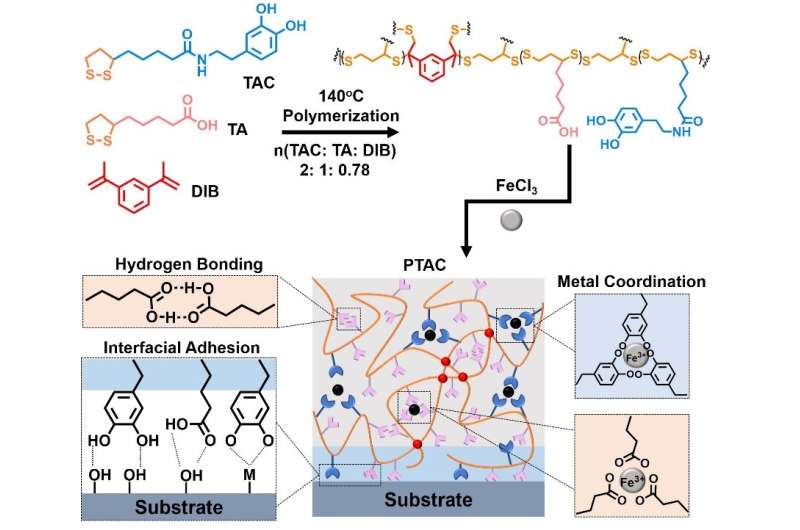Phys.org October 18, 2022
Researchers in China have developed a simple and robust strategy that combines natural thioctic acid and mussel-inspired iron-catechol complexes to enable ultra-strong adhesive materials that can be used underwater and simultaneously exhibit unprecedented high adhesion strength on diverse surfaces. Their experimental results showed that the robust crosslinking interaction of the iron-catechol complexes as well as high-density hydrogen bonding were responsible for the ultra-high interfacial adhesion strength. The embedding effect of the hydrophobic solvent-free network of poly(disulfides) further enhanced the water-resistance. The network also made possible the resulting materials reconfigurable, thus enabling multiple reusability via repeated heating and cooling. According to the researchers the molecule-engineering strategy offers a general and versatile solution to the design and construction of dynamic supramolecular adhesive materials. According to the researchers their work promotes fundamental understanding of interfacial adhesion mechanisms as well as future applications of biomedical adhesive materials… read more. TECHNICAL ARTICLE

Schematic representation of the monomer structures, synthesis conditions and polymer networks. Credit: Science China Press